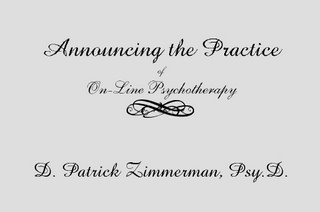
DO AS I SAY, NOT AS I DO...
She Needed Therapy
Marilee Jones was the Dean of Admissions at Massachusetts Institute of Technology who was forced to step down from that position on Monday. In a note of bittersweet irony, since last fall Ms. Jones has been making speeches all around the country to promote her new book, Less Stress, More Success: A New Approach to Guiding Your Teen Through College Admissions and Beyond. The book had added to her reputation as a leader in the movement to tame the present-day college admissions frenzy. She had become well known for urging stressed-out students competing for elite colleges to calm down and stop trying to be so perfect.
But, Less Stress, More Success addresses not just the pressure to be perfect, but also the need to live with integrity. “Holding integrity is sometimes very hard to do because the temptation may be to cheat or cut corners,” she wrote. “But just remember that ‘what goes around comes around,’ meaning that life has a funny way of giving back what you put out.”
Yes, it certainly does...er, has!
Yesterday, Ms. Jones admitted that she had made up all of her higher education credentials and resigned after nearly thirty years at M.I.T. Officials of the institute said she did not have even an undergraduate degree.
“I misrepresented my academic degrees when I first applied to M.I.T. 28 years ago and did not have the courage to correct my résumé when I applied for my current job or at any time since,” Ms. Jones said in a statement posted on M.I.T.'s web site. “I am deeply sorry for this and for disappointing so many in the M.I.T. community and beyond who supported me, believed in me, and who have given me extraordinary opportunities.” Ms. Jones, 55, was originally from Albany, New York, and had on various occasions claimed to have degrees from three upstate New York institutions: Albany Medical College, Union College and Rensselaer Polytechnic Institute. In fact, she had no degrees from any of those places, or anywhere else.
 Technorati: massachusetts institute of technology, M.I.T., Dean of Admissions, 28 year old lie, caught, forced to resign, higher education, education, Marilee Jones
Technorati: massachusetts institute of technology, M.I.T., Dean of Admissions, 28 year old lie, caught, forced to resign, higher education, education, Marilee JonesBe Social:


























